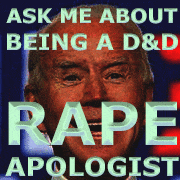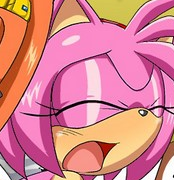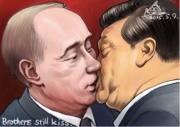(Thread IKs:
fart simpson)
|
stfu liberal
|
|
|
|

|
| # ? May 28, 2024 00:48 |
|
Metal Cat has issued a correction as of 04:12 on Oct 8, 2021 |
|
|
|
Metal Cat posted:Diet cokes taste awful and are as unhealthy as regular ones. Get the real deal. https://twitter.com/realDonaldTrump/status/258262904091058176?s=19
|
|
|
|
It's 2019 and hamprince is effort posting about marxism Wtf is happening I'm scared
|
|
|
|
Typo posted:nothing wrong with that, under Mao China had no taxes because the state control means of production thus there's no need to tax what's already the state's own assets, it's simply a way of internally allocating resources. Tax cuts under capitalism is bad because they are obvious "looting of state" by bourgeois, tax decrease under Socialism is simply re-allocating resources to be used in a more efficient way to advance socialism, improve the productive forces of society, and benefit the Chinese proletariat. What about 4:50, “and began construction of a pilot free trade zone in Hainan.” I don’t know poo poo about China so I appreciate the defensive takes, ironic or not.
|
|
|
|
Kobayashi posted:What about 4:50, “and began construction of a pilot free trade zone in Hainan.” I don’t know poo poo about China so I appreciate the defensive takes, ironic or not. Typo posted:SEZs are a source of importation of foreign technology, China's relative backwardness in productive forces means that it needs to learn and steal from the west in order to advance socialism. It has succeed so much that now the people's revolution possess advanced Dong Feng (eastern wind for you laoweis) anti-carrier missile capable of striking down the foremost weapon of capitalist imperialism which are US aircraft carriers when the revolution liberates Taiwan. This barricade of missiles is analogous to barricades built during Paris Commune to fight return of capitalism where Socialist China is the Commune and America is leading the counter-revolutionaries.
|
|
|
|
Fallen Hamprince posted:i gave a flippant answer earlier but nobody has actually answered this so i'll try Did Marx ever come up with a specific way to tell when an economy is strong enough to switch to full communism? It seems that modern-day communists are too eager to switch to full communism right now, when they instead should vote for Trump and let capitalism increase productivity further until the economy can easily afford to implement a high UBI, at which point the switch to full communism can be made safely.
|
|
|
|
You really don't need to go to Marx to explain Deng. Dengism = authoritarian politically + protected free market + minimize military budget to ally with US. There are plenty of examples from warring period and later dynasties. Nothing Deng has said strike me he believe in grand theories. Edit: also army required unconditional royalty to the party, not the state. tino has issued a correction as of 21:45 on Jan 2, 2019 |
|
|
|
Deng pretty much doomed China to being an authoritarian capitalist state until the next bloody civil war can overthrow it. There was a brief period in the 80s where China was getting pretty good but he squashed it. He also arbitrarily made his hometown, a large city but in the middle of nowhere, a first tier city with special economic status on par with Beijing and Shanghai lol
|
|
|
|
Modest Mao posted:Deng pretty much doomed China to being an authoritarian capitalist state until the next bloody civil war can overthrow it. LOL had the counter-revolutionaries/anti-party groups succeeded in the 1980s 1990s China would have being like 1990s Russia
|
|
|
|
Typo posted:LOL had the counter-revolutionaries/anti-party groups succeeded in the 1980s 1990s China would have being like 1990s Russia 90s russia happened because western economists were emboldened by the "polish miracle" and decided to heartlessly experiment with the livelihood of a hundred million people. There were plenty of political thinkers in China asking for more worker control, freedom, and democracy (not meaning western liberal republic style government but rule by the people). They were not looking for social experiments or foreign experts. Deng had every potential to set a path for a more democratic and free China but instead decided that the future was in the party's hands, not the nation or the people. What do you think about Kronstadt?
|
|
|
|
Modest Mao posted:90s russia happened because western economists were emboldened by the "polish miracle" and decided to heartlessly experiment with the livelihood of a hundred million people. This is literally exactly what Gorbachev thought in 1987 or so USSR who ended up allowing for free elections/political reforms but ended up unleashing forces beyond his control that ultimately ended up with Boris Yeltsin and shock therpay quote:What do you think about Kronstadt? any successful revolutionary enterprise requires a Thermidor moment
|
|
|
|
Gorbachev was right that socialism needed reform, and I think he was right to address the obvious problems and flaws the USSR had created. He incredible misshandling of his reforms lead to his coup and I don't think you can say that 1980s china was in an identical position... if anything after the gang of four was removed China was for a moment open to a lot of possibilities and they also chose a regretful path.
|
|
|
|
qkkl posted:Did Marx ever come up with a specific way to tell when an economy is strong enough to switch to full communism? It seems that modern-day communists are too eager to switch to full communism right now, when they instead should vote for Trump and let capitalism increase productivity further until the economy can easily afford to implement a high UBI, at which point the switch to full communism can be made safely. Marx believed that over the long term, capitalist enterprises become less and less profitable due to the increased proportion of their productivity coming from capital (machines). Since under Marxian economics all profit is derived from the surplus value extracted from the labourer by the capitalist, productivity gained from capital investment does not constitute profit. Therefore, somewhat counter-intuitively, as productivity increases profitability decreases, and the capitalists are driven to squeeze labour (the source of profit) more and more to compensate, eventually causing the system of capitalist production to be overthrown by a worker's revolution. Since the tendency of the rate of profit to fall is an innate characteristic of capitalism it renders capitalism's downfall inevitable. Contemporary marxists in the US tend to believe that Western society is close to this predicted end state of Late Capitalism, in which conditions for the working class become intolerable and a revolution occurs. There is a minority opinion, 'accelerationism', which seeks to 'highten the contradictions' underpinning capitalist society and therefore bring revolution more quickly by making capitalism worse, e.g. by voting for Trump. To their credit, most socialists consider acceleration an insane idea, I remember someone describing it as being like feeling smug about in a train crash by pretending to be the conductor. I'll note that Marx formulated this theory in the 19th century before environmentalism became a big thing; IMO it's more likely that industrial society collapses due to lack of resources or catastrophic environmental change than any intrinsic long-term trend in capitalist political economy. tino posted:You really don't need to go to Marx to explain Deng. Dengism = authoritarian politically + protected free market + minimize military budget to ally with US. There are plenty of examples from warring period and later dynasties. Of course, it's an open secret that Deng was more interested in keeping the lights on than divining the true path to communist utopia. The ideological justification was formulated by other people; what we call 'Dengism' was commissioned by Deng, not written by him.
|
|
|
|
Modest Mao posted:Gorbachev was right that socialism needed reform, and I think he was right to address the obvious problems and flaws the USSR had created. Even after the gang of four was purged, the Communist party in China still resembled in CPSU in the sense that there was still 3 roughly coherent factions within each party: 1) The Hardliners (Chen Yun, Li Peng in the CCP/August Coupsters in CPSU) 2) The "Centrist" Reformers (Deng/Ligachev, Gorbachev 85-87) 3) The radical reformers (Zhao Ziyang/Yeltsin) What destroyed the USSR was that Gorbachev's reforms allowed the "radical reformers" to seek political power outside the party, while simultaneously discrediting himself to the hardliners. So both the (1) and (3) turned against (2). So you got the August Coup which immediately sidlined Gorbachev and his Socialist reformist program from power regardless of the actual outcome, and which came down to a dice throw on whether the radicals or the hardliners won, the former gave us shock therapy, the latter might have given us a bigger DPRK. In China when push came to shove Deng sided with 1) over 3), and on the long run this meant that his reformist program survived and flourished. The Russian scenario might have played out in China had Deng being more radical with political reforms. You are right that China is different and maybe had the 1980s period of political thaw continued we might have gotten a more "democratic" (take that as you well) China out of it, I just think that's unlikely. A really fascinating point of comparative politics is to contrast The August coup of 1991 vs Tienanmen Square of 1989, and why one regime collapsed while the other didn't and the consequences of each. Typo has issued a correction as of 23:04 on Jan 2, 2019 |
|
|
|
.
sincx has issued a correction as of 05:27 on Mar 23, 2021 |
|
|
|
sincx posted:Is Typo still gimmick posting, or what? At this point, who cares? Just let it ride.
|
|
|
|
Fallen Hamprince posted:I'll note that Marx formulated this theory in the 19th century before environmentalism became a big thing; IMO it's more likely that industrial society collapses due to lack of resources or catastrophic environmental change than any intrinsic long-term trend in capitalist political economy. Marx was actually interested in all the systems of accumulation and wrote about how Capitalism placing so many humans into cities disrupts the nutrient cycle i.e. we take nutrition from the soil, feed the people in the city, and it washes down the river and out to sea, leaving the system. Of course modern petrochemicals and bioscience means we can add it back in but it's pretty incredible Marx of all people was the first to think of this problem. It's also really interesting that on this kinda marxist forum most people don't get past the Crisis, Falling Profit, Blah Blah thing of Marx. Him and Engles really fuckin' owned at analyzing social systems to a level no one has even gotten close to and most of it will be an important consideration in what the hell to do after capitalism Modest Mao has issued a correction as of 23:18 on Jan 2, 2019 |
|
|
|
This threads cool because you've got people arguing with gimmick posters and it's impossible to tell which is which without prior knowledge
|
|
|
|
Typo posted:A really fascinating point of comparative politics is to contrast The August coup of 1991 vs Tienanmen Square of 1989, and why one regime collapsed while the other didn't and the consequences of each. lol how are these anything alike other than Famous Foreign Event
|
|
|
|
Modest Mao posted:lol how are these anything alike other than Famous Foreign Event in both cases you had a reformist general secretary (Zhao Ziyang/Gorbachev) out of line with rest of the party besieged by hardliners in both cases you had crowds gathered in the capital in support of radical reformers, and the hardliners sitting in the halls of power on a more abstract level, in both cases it was the contradictions between Marxist-Leninism and recent policy reforms came to head literally in the public square and threaten the regime's existence. In one of the them the party ordered the tanks to open fire on the crowd to resolve that particular contradiction, in the other they waffled. Why and how the decisions were made to suppress/vs surrender to the crowd is rather informative. The consequences of those decisions is still felt to this day and will be for the next 50 years at least.
|
|
|
|
sincx posted:Is Typo still gimmick posting, or what? irony poisoning is real, but sometimes poison is actually medicine
|
|
|
|
Typo posted:both are the direct consequences of trying to reform the Socialist states which were built up in the immediate post-war era This is kinda a stretch when the tanks were pointing in completely opposite directions in these two events
|
|
|
|
It's like extremely bad analysis to say that normal people coming to the halls of power for various reasons and being run over by military hardware is the same as Yeltsin standing on a tank and then a coup attempt shooting into the parliament Modest Mao has issued a correction as of 23:56 on Jan 2, 2019 |
|
|
|
sincx posted:Is Typo still gimmick posting, or what? yes and it sucks real bad and im not sure why people got mad when i probated him for it
|
|
|
|
I am simply adapting Marxist-Leninism to the unique historic and material conditions of C-Spam
|
|
|
|
Sheng-Ji Yang posted:yes and it sucks real bad and im not sure why people got mad when i probated him for it if a regularly-posting PRC communist does not exist, the thread will have to create him
|
|
|
|
his point (i think) is that the very attempt to reform precipitated a crisis of the old order. having now successfully contained or erased popular demand for reform, and witnessed the SU's spectacular collapse and russia's diminished state, i'm sure that most of the ccp think tiananmen square was crushed appropriately. xi's strange contortions between gung-ho savior of international trade (and the capitalist order it perpetuates) and maoist nostalgia and red values is a response to perceived constraints.he faces the problem of what to do with a capitalist sector that is important to enrich the country/increase national self-sufficiency but which simultaneously perpetuates inequality and erodes party authority and discipline. One party rule, with its opacity, factionalism, and sheer sprawl, is deeply vulnerable to corruption and crony capitalism btw this is not a gimmick post btw btw xi of course is a direct benefactor from the ccp's undemocratic and clubby nature so that doesnt help either lol btw btw btw i assume these screengrabs are in reference to recent tax reform, which was actually well thought out and good for working people Fuligin has issued a correction as of 00:05 on Jan 3, 2019 |
|
|
|
Sheng-Ji Yang posted:yes and it sucks real bad and im not sure why people got mad when i probated him for it Is there some super cool conversation you think should be happening that isn't happening because you haven't banned Typo?
|
|
|
|
Tiananmen square is also a "first as farce, then as tragedy" situation when Deng himself orchestrated a protest in the square 15 years prior to the more famous event, following the death of Zhou Enlai. People were questioning the direction of the government and asking for reforms. The precedent of protesting in the square and using the "Democracy Wall" to air grievances were, in 1989, well established, in fact Deng was placed on house arrest explicitly for supporting their use. When Hu Yaobang died and several student movements met in the square, a completely organic protest of exactly the same type Deng had previously orchestrated against his enemies was squashed with martial force. Few (none?) were calling for the end of the Chinese Communist Party's rule or a even change in leadership, just a change in the direction of the development of Chinese society. Deng Xiaoping sucks and it's too bad a billion people are brainwashed into thinking he does not, in fact, suck
|
|
|
|
Fuligin posted:his point (i think) is that the very attempt to reform precipitated a crisis of the old order. having now successfully contained or erased popular demand for reform, and witnessed the SU's spectacular collapse and russia's diminished state, i'm sure that most of the ccp think tiananmen square was crushed appropriately. xi's strange contortions between gung-ho savior of international trade (and the capitalist order it perpetuates) and maoist nostalgia and red values is a response to perceived constraints.he faces the problem of what to do with a capitalist sector that is important to enrich the country/increase national self-sufficiency but which simultaneously perpetuates inequality and erodes party authority and discipline. One party rule, with its opacity, factionalism, and sheer sprawl, is deeply vulnerable to corruption and crony capitalism Are you talking about the very Communist thing he did raising the tax rate on the wealthy from 25% to 45% overnight. Or the funny thing that china has an essentially flat tax for anyone living in a city so everyone got hosed really hard.
|
|
|
|
Modest Mao posted:Tiananmen square is also a "first as farce, then as tragedy" situation when Deng himself orchestrated a protest in the square 15 years prior to the more famous event, following the death of Zhou Enlai. People were questioning the direction of the government and asking for reforms. The precedent of protesting in the square and using the "Democracy Wall" to air grievances were, in 1989, well established, in fact Deng was placed on house arrest explicitly for supporting their use. Of course, poster Modest Mao first unironically perpetuate propaganda brought by the anti-party gang of four (the leader of which admitted she never understood Maoism while beguiling Mao and responsible for his 30% bad) against Deng over 1976 and then unironically perpetuate propaganda against the party The Chinese leadership acknowledged that most of the students had legitimate demands, but at the same time, had proof that "bad elements" within the protests were directed by USA, Taiwan, and Hong Kong to use and manipulate protests as a "command center" for a final showdown against the party, annihilate socialism, destroy Chinese sovereignty, and return colonialism. While not mentioning that 95% of protests in 1989 were diffused peacefully and protesters went home satisfied that the government will change for the better. While not mentioning at all that Marxist-Leninist-Dengism brought more people out of poverty than any other country in history and continues to guide China's advancement into 21st century socialism. This is the sort of social fascism that must be struggled against. Typo has issued a correction as of 00:21 on Jan 3, 2019 |
|
|
|
Tiananmen played a direct role in the Eastern block countries folded so fast a couple years later because most people at power realized they had to commit to tank to continue the communist dictatorships. And people who still believe in Marxism couldn't bring themselves to do it. What happened in China was actually a lot closer to a palace power struggle than a ideological struggle, not trying to excuse Deng here. I was reading up on the Cixi and the failure of Hundred Day's Reform. Cixi actually was for the reform, she was just against losing power and control. Guangxu was her handpicked successor she raised herself from an toddler, after her son and husband had died. Guangxu really was her closest person. But when both sizes were moving toward a palace coup, the more powerful and merciless side inevitably won. And afterward Cixi had to lean on the conservatives because all the reform fractions had been killed along with Guangxu. I see quite a bit of similarity between Cixi/Guangci and Deng/Zhao Ziyang relationship. Neither Cixi nor Deng ever had political legitimacy. The main difference being Cixi sat on her rear end and did a slow reform afterward while Deng came out of retirement 4 years later and manually forced the economic reform schedule back on rail, with military backing.
|
|
|
|
Chairman of Central Military Commission Deng Xiaoping posted:Comrade Xiannian is correct. The causes of this incident have to do with the global context. The Western world, especially the United States, has thrown its entire propaganda machine into agitation work and has given a lot of encouragement and assistance to the so-called democrats or opposition in China — people who are in fact are the scum of the Chinese nation. This is the root of the chaotic situation we face today.
|
|
|
|
tino posted:Tiananmen played a direct role in the Eastern block countries folded so fast a couple years later because most people at power realized they had to commit to tank to continue the communist dictatorships. And people who still believe in Marxism couldn't bring themselves to do it. False: Eastern Bloc countries folded in the same year as TMN, the wobbling of eastern bloc countries that year directly played into the decision to use force at TMN Ceausescu tried to use force and it failed
|
|
|
|
Modest Mao posted:Are you talking about the very Communist thing he did raising the tax rate on the wealthy from 25% to 45% overnight. Or the funny thing that china has an essentially flat tax for anyone living in a city so everyone got hosed really hard. the thing where they raised the cap before taxable income to 5000 yuan
|
|
|
|
tino posted:Neither Cixi nor Deng ever had political legitimacy.
|
|
|
|
Typo posted:Deng had enormous political legitimacy with the exception of the years 1989-1993 He was "retired" before that. Also he built the central polibureau system to prevent Mao style dictator. The system kinda lasted 20+ years.
|
|
|
|
tino posted:He was "retired" before that. Also he built the central polibureau system to prevent Mao style dictator. The system kinda lasted 20+ years. real power was never in the politburo and everyone knew this, real power was among the clique of party elders (Chen Yun, Li Xiannian etc) who considered Deng their "first among equals" and made all their decisions in the porch of Deng's house, the decision to send in the tanks in 1989 was made by the party elders who held only formal advisory roles it's only when that clique got too old/died off in the mid-1990s when the politburo really did have the final say over decisions
|
|
|
|

|
| # ? May 28, 2024 00:48 |
|
Typo posted:False: Eastern Bloc countries folded in the same year as TMN, the wobbling of eastern bloc countries that year directly played into the decision to use force at TMN Ceausescu used force in really stupid and annoying ways that were guaranteed to piss anybody off.
|
|
|























